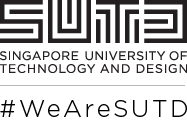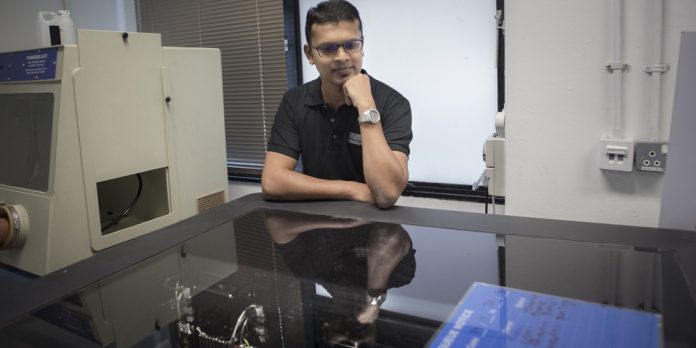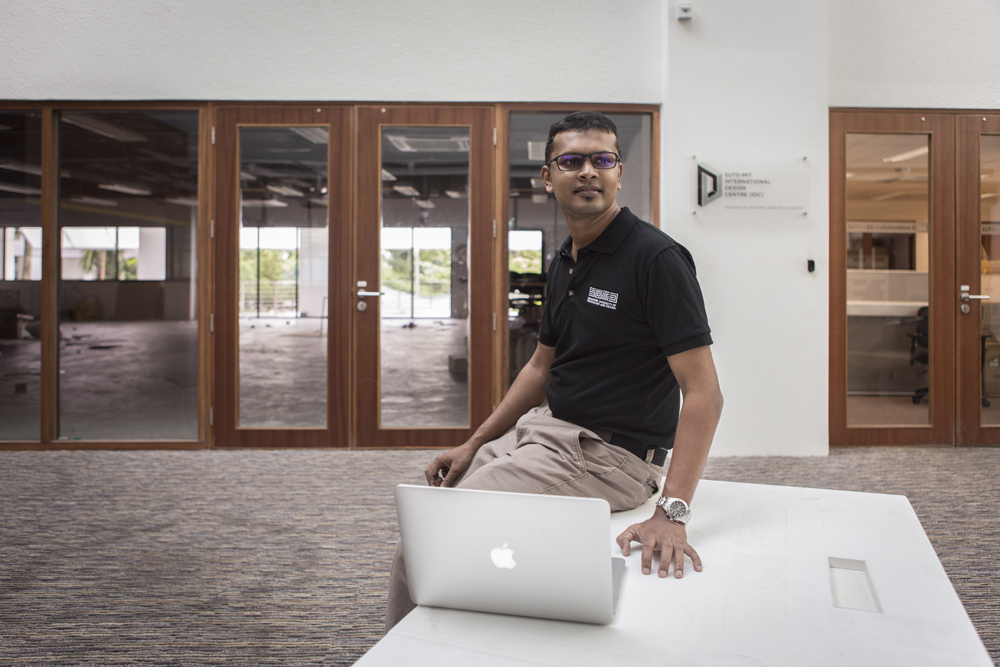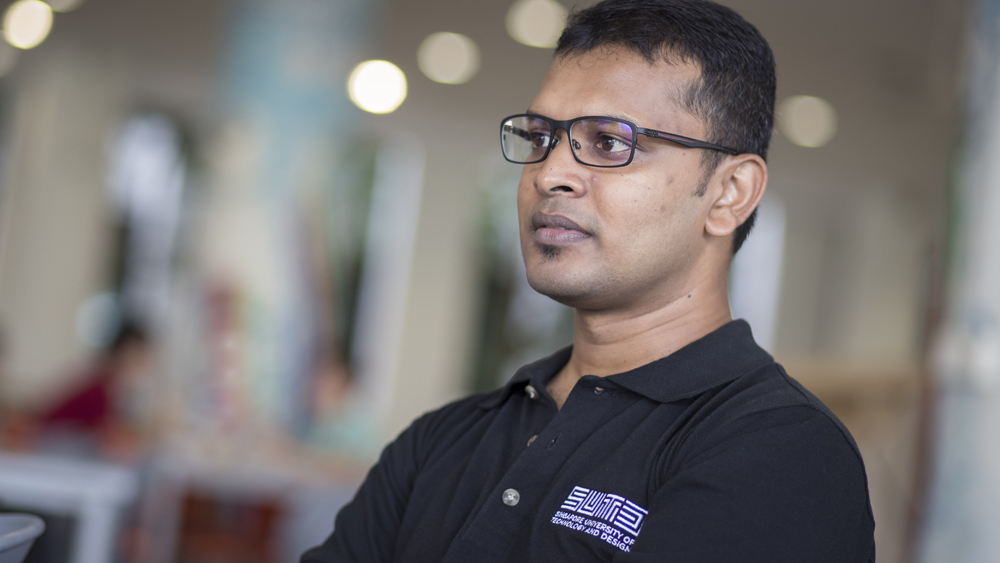One of the things Professor Suranga Nanayakkara loves most about SUTD is the culture of openness and flexibility we have. It’s one where we’re constantly collaborating, building something new and innovative — one where we’re encouraged and empowered to tinker and make things that make the world a better place.
For an engineer, this is a dream come true. As a young boy, Professor Suranga was fascinated by the internal workings of the electrical equipment he found at home, surely a perk when your mother’s an electrical engineer by profession! As a professor of engineering, it’s now his turn to teach and mentor young students at SUTD.
“Can you imagine a world without engineers? … transportation without vehicles, living without electricity, and so on. Engineering innovations have transformed the world to what it is today.”
— Professor Suranga
One of Professor Suranga’s proudest achievements at SUTD is Augmented Senses, a leading research group in the area of Assistive Augmentation. They have published a significant number of papers and have patented 6 technologies, one of which have become a SUTD spinoff company. The team comprises post-doctorates, research assistants, Ph.D. students and undergraduate researchers.
Another memorable project was when Professor Suranga collaborated with Professor Thomas Schroepfer to create an interactive light installation, iSwarm, as part of the iLight 2014 festival. This installation reacted to the presence of visitors with modulating patterns and colours. It was an excellent opportunity to showcase SUTD’s interdisciplinary approach, as it required the expertise of several university pillars. In total, about 60 members of the SUTD community worked on the project for approximately 8 weeks.
 iSwarm, the Singapore University of Technology and Design Advanced Architecture Laboratory and Augmented Senses Group’s contribution to iLight Marina Bay Singapore 2014, depicts luminous sea creatures that interact with the visitors of the event.
iSwarm, the Singapore University of Technology and Design Advanced Architecture Laboratory and Augmented Senses Group’s contribution to iLight Marina Bay Singapore 2014, depicts luminous sea creatures that interact with the visitors of the event.
Sometimes, work stretches late to the night. This is when SUTD becomes a second home for the team, as most of the facilities are open 24-7, which is something many people may take for granted. “Late nights usually starts with pizza, and then after midnight, another round of coffee or McDonalds!” shared Professor Suranga. Although projects may run late into the night, leading to some tired and unhappy faces, it’s all worth it in the end. “Once the mission has been completed, even the ones who have complained a little more will feel very proud. They see the satisfaction of having succeeded, especially looking back at where we’d come from.”
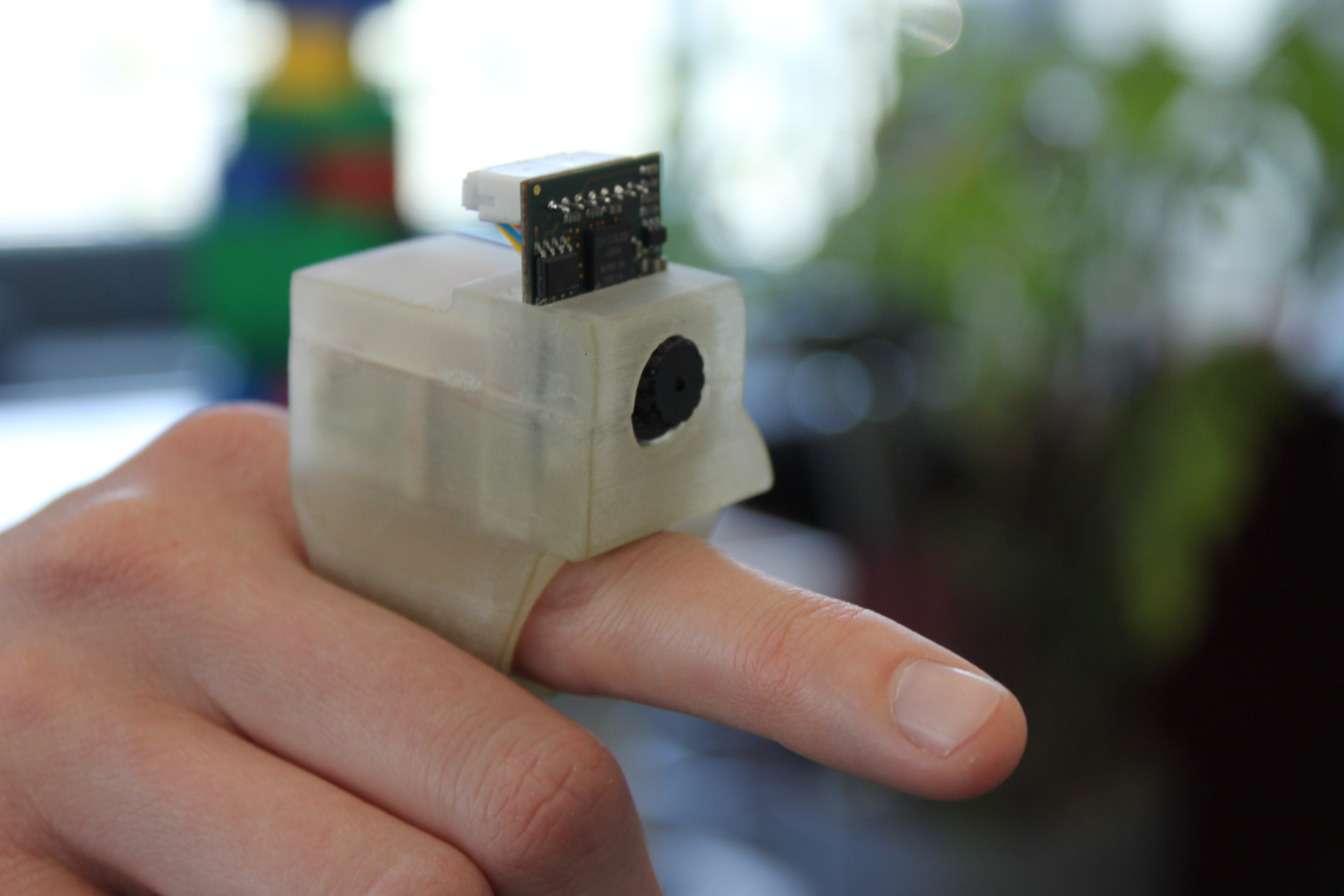 One of the projects with Augmented Senses – The FingerReader, a wearable device that assists in reading printed text. It is a tool both for visually impaired people that require help with accessing printed text, as well as an aid for language translation.
One of the projects with Augmented Senses – The FingerReader, a wearable device that assists in reading printed text. It is a tool both for visually impaired people that require help with accessing printed text, as well as an aid for language translation.
What makes SUTD special is the diversity of knowledge and culture within the community. The students and professors here represent a wide spectrum of different backgrounds and professions.
“When I walk about SUTD, I meet physicists, chemists, engineers, architects, the humanities… This naturally leads to collaboration and really good projects. And of course, it’s always refreshing to discuss and chat with someone who’s not from your field.”
— Professor Suranga
Apart from being a faculty member, Professor Suranga is also one of the Hostel fellows at the SUTD hostel. “This has been a rewarding experience as it allowed me to be part of a bigger family. Together with the 3 other Hostel Fellows and Hall Master, we wanted to create an enriching living experience for the students. We organised many activities, like supper with students, Chinese New Year events, Halloween parties and so on. I am very satisfied with what we have achieved over the last three and a half years and I very much look forward to continuing as a HF (Residential Mentor) at the East Coast Campus.”
Whether tinkering with a radio set as a child, creating an interactive and immersive light installation, or advancing our knowledge in Assistive technology, Professor Suranga has always kept innovating and developing something new. He looks forward to continuing his aspirations as an engineer with a newer and better SUTD.
